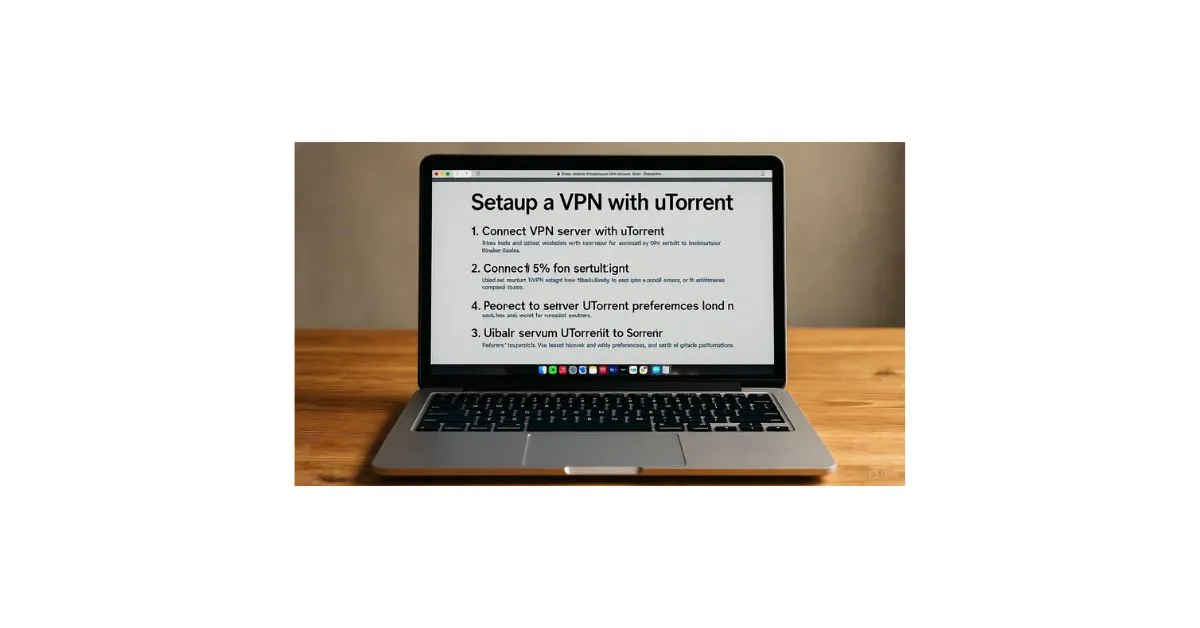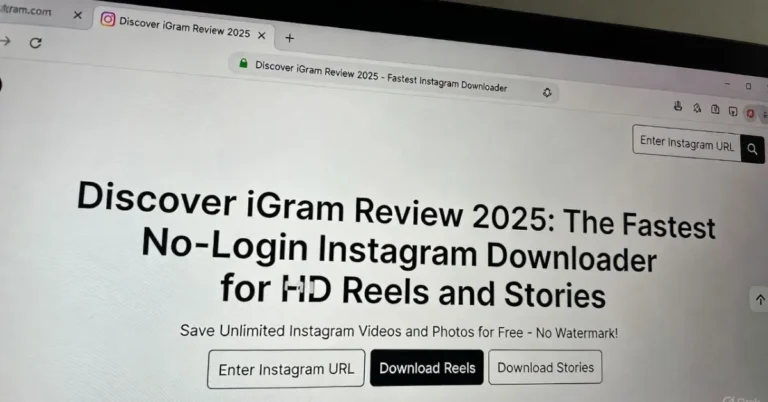Is Torrenting Without a VPN Unsafe in 2025?
Have you ever grabbed a file through torrenting and wondered if skipping that extra layer of protection was a bad call? In 2025, with streaming prices climbing and more folks turning to P2P sharing, it’s easy to jump in without thinking twice; torrenting without a VPN is unsafe. But let’s chat about what could go wrong and how to stay smart about it.
Key Takeaways
- Torrenting without a VPN leaves your IP wide open to ISPs and peers, boosting chances of speed cuts and warnings.
- Malware hides in about one-third of torrents, but sticking to checked sites like the Internet Archive helps dodge that mess.
- Options like proxies or seedboxes give some cover, yet VPNs top the list for full safety.
- This year sees more blockchain tweaks in P2P, but encryption is still key to keep things private.
- Grab clients like qBittorrent with built-in safeguards for a quick start on better habits.
What Is Torrenting?
Torrenting lets you pull files from lots of people at once, making big downloads faster than grabbing from one spot. Think of it as a group effort where everyone shares bits of the file. It’s handy for stuff like software updates or free music, but it comes with its own set of quirks.
Basics of P2P File Sharing
At its core, P2P means peer-to-peer, where your device connects directly to others. You have seeders who upload the full file and leechers who download. Trackers help link everyone up. Around 28 million people do this daily, sharing everything from games to docs. For example, companies like Blizzard use it for game patches, showing it’s not all shady.
But without care, your info floats out there. ISPs can peek in, and that’s where trouble starts. Always scan files after download to catch any surprises.
How Torrenting Works in 2025
These days, magnet links make starting downloads a snap—no need for extra files. Trends point to Web3 blending in, using blockchain for more spread-out storage. This means files stick around longer without central servers. Sites like LimeTorrents boast huge libraries with high seed counts for quick grabs.
Yet, with 170 million monthly BitTorrent users, the crowd brings risks. New tools focus on privacy, but basics haven’t changed much. Pick a client that supports modern protocols for smoother runs.
Risks of Torrenting Without VPN
Skipping a VPN while torrenting is like leaving your front door unlocked in a busy neighborhood. Your data zips around exposed, and not everyone plays nice. Let’s break down the main headaches.
IP Exposure and ISP Monitoring
Your IP address acts as your online ID, and without hiding it, ISPs track every move. The FTC’s 2024 report, still relevant now, shows they collect and share this data. In Canada, throttling hits 75% of BitTorrent traffic, slowing you to a crawl.
Picture getting a notice in your email about suspicious activity—that’s common without cover. Some users face account freezes. To fight back, check your ISP’s rules first and consider tools that mask your trail.
Malware and Cyber Threats
Torrents often bundle nasty surprises; stats show 98.8% involve copyrighted stuff, many laced with viruses. Public trackers are hotspots for this, while private ones cut risks with invites only.
One wrong click, and ransomware locks your files. Always use an antivirus like those built into Windows, and verify with sites like VirusTotal. Comparing trackers: public ones are free but risky, private ones demand upkeep but offer cleaner files.
Hacking and Data Leaks
Peers see your IP, opening doors to attacks. With 4 million U.S. torrenters exposed, hackers probe for weak spots. Leaks happen when connections drop without safeguards.
Real cases show devices hijacked for botnets. Keep software updated and avoid sharing personal bits in swarms. This keeps your setup tight against prying eyes.
Legal Issues With Torrenting
Laws around torrenting trip up many, but it’s straightforward once you know the lines. Sharing copyrighted files without permission lands you in hot water, but not all downloads cross that.
Is Torrenting Illegal?
Torrenting itself? No, it’s legal for open stuff like Linux files or public domain books. But under DMCA, grabbing protected content risks fines up to $150,000 per item.
Countries vary: U.S. and U.K. enforce strictly, while places like the Philippines are looser. In 2025, more nations tighten up, so know your local rules. Stick to legit sources to stay clear.
Getting Caught: What Happens?
Copyright trolls handle 53% of U.S. cases, sending settlement demands. The Dallas Buyers Club suits showed how they track IPs and sue.
If caught, expect warnings first, then fines or worse. One tip: steer from hot copyrighted torrents. Use search filters for free content to lower odds.
Alternatives to Using a VPN
Not ready for a VPN? Other paths offer some shield, though they lack full punch. Weigh them against your needs for speed or cost.
Proxies and SOCKS5 for Torrenting
Proxies swap your IP for another, hiding basics. SOCKS5 adds speed for P2P. Pros: cheap and quick setup. Cons: no encryption, so data stays readable.
Versus VPNs, proxies win on pace but lose on safety. Good for light use, but pair with antivirus for better odds.
Seedboxes and Private Trackers
Seedboxes are remote boxes that download for you, then you grab via secure link. Services like RapidSeedbox handle this. They keep your home connection clean.
Private trackers need invites but promise verified files and fast speeds. Communities enforce ratios, ensuring give-and-take. This setup cuts exposure big time.
Tor or I2P Networks
Tor routes traffic through nodes for anonymity, free to use. I2P focuses on internal nets. Both slow down large files due to layers.
Drawbacks: not built for bandwidth hogs like torrents. Fine for small stuff, but expect waits. Fact: Tor suits browsing more than heavy lifting.
How to Torrent Safely in 2025
Staying safe means layering up tools and habits. It’s not hard once you get the routine down.
Choosing the Right VPN
Look for no-logs policies, kill switches that cut net if VPN drops, and P2P okay servers. NordVPN and ExpressVPN shine with fast speeds and strong encryption like AES-256.
In 2025, providers add anti-malware packs. Test with free trials to match your setup. This hides your activity fully from watchers.
Best Practices and Tools
Start with clients like qBittorrent or Deluge—ad-free and open-source. Enable kill switches there too.
Steps: Install solid antivirus, pick verified torrents, scan post-download. For mobile, skip public Wi-Fi; use device VPNs. These habits turn risky fun into smooth sailing.
Free vs. Paid Options
Free VPNs tempt with no cost but cap data and may log activity. Paid ones like Surfshark offer unlimited use and better security.
Compare: free for casual, paid for heavy. Risks with free include weak shields—opt paid for peace of mind.
Common Myths About Torrenting Safety
- Myth: Wiping the client clears your tracks—fact: ISPs log before you delete.
- Myth: Only bad torrents bring trouble—fact: malware sneaks into any.
- Myth: Torrenting fades away—fact: 170 million users keep it alive in 2025.
Secure your setup by trying a trusted VPN for torrenting now—grab a trial and see the difference in privacy.
FAQs
What happens if I torrent without a VPN?
Your IP gets exposed to ISPs, who can monitor and throttle your speeds. Peers might target you with hacks, and copyright holders could send notices or sue for infringements. Malware risks rise too, as files aren’t shielded. In 2025, with stricter tracking, this leads to warnings or fines faster. Always layer protections like antivirus to cut dangers, but a VPN is key for hiding activity.
Is torrenting safe in 2025?
It can be with right steps, like using VPNs for encryption and verified sites for clean files. Without, IP leaks invite legal woes under DMCA, with fines up to $150,000. Trends show more blockchain for decentralized shares, but malware in 1/3 of torrents persists. Stick to open-source clients and private trackers for lower risks. Overall, safe if you prioritize privacy tools.
Can my ISP see torrenting?
Yes, without encryption, they spot P2P traffic easily and may log or share it per FTC rules. This triggers throttling or notices. In places like the U.S., they must report under laws. Use tools to mask IP and encrypt data. In 2025, advanced monitoring makes hiding essential—avoid public Wi-Fi too. Check your provider’s policy to stay ahead.
How to torrent anonymously without VPN?
Options like proxies hide IP basically, or Tor routes through nodes for free anonymity. Seedboxes download remotely. But these lack full encryption, slowing speeds or leaving data vulnerable. For true cover, they’re partial—combine with antivirus. In 2025, blockchain aids some privacy, but VPNs beat them for P2P. Test setups carefully.
Are free VPNs good for torrenting?
They’re risky with data caps, logs, and weak P2P support. Many sell user info or inject ads. Paid ones like NordVPN provide no-logs, kill switches, and fast servers. Free might work lightly but expose you long-term. In 2025, opt paid for reliability—trials let you check. Avoid free for heavy use to prevent leaks.
What are safe torrent sites?
Sites like Pirate Bay, 1337x, and RARBG offer verified torrents with user checks. Look for high seeders and comments. Avoid untrusted ones with pop-ups. In 2025, LimeTorrents stands out for variety. Always scan files and use VPNs. Private trackers add safety via invites. Prioritize legit content to minimize malware.







